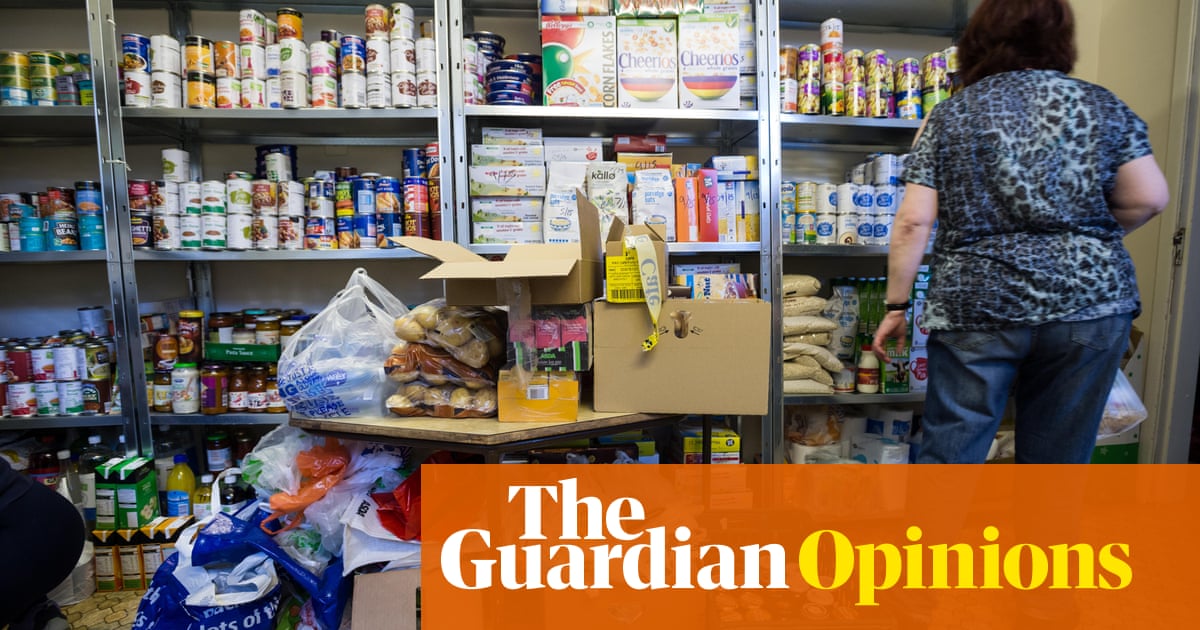
This morning, about 300,000 children woke up in households affected by the benefit cap. Lots of these children – enough to fill more than 1,000 primary schools – will be living in cold and damp homes, with food cupboards near empty; in deep poverty that leaves normal childhood activities, such as after-school clubs, swimming lessons and family days out, far out of reach.
Since 2020, I’ve been working with colleagues at the universities of York and Oxford and the London School of Economics to investigate the impact of the benefit cap and the two-child limit (commonly referred to as the two-child benefit cap) on families with three or more children.
In our research with families affected by the benefit cap, we have spoken to parents such as Lucy, who pays £1,375 a month to rent a mould-ridden, rat-infested property. At times, the cap has left her family with as little as £65 a week to survive on once the rent and some of the bills are paid. £65. For five of them. It is simply not possible to get by on that.
We spoke to Lucy four times over four years, and she was always doing all she could to move out of that property. But as our analysis of Zoopla listings shows, the housing just isn’t there. Finding cheaper rents would enable people to escape the cap, because this would reduce their need for financial support with their housing and would bring them under the level of the cap. But there is a complete absence of affordable housing in many areas.
Despite the cap causing real and lasting harm, it garners little attention from politicians or the media. Much more focus is paid to its sister policy, the two-child limit, which denies means-tested financial support of up to £3,455 per child to third and subsequent children born on or after 6 April 2017.
The two-child limit is incredibly punitive; withdrawing support for children purely on the basis of the number of siblings they have. It applies to households in and out of work, and every day that it remains in place, the number affected grows. But the benefit cap, which places an absolute limit on the income that a household can receive in social security benefits, should also demand our attention.
Statistics released today reveal that 123,000 households in England, Scotland and Wales were affected by the benefit cap in May 2024, a rise of about 46,000 in just three months according to government figures. Introduced by George Osborne in 2013, the cap means the most a family without regular work can claim is £25,323 in London and £22,020 in the rest of the country.
A totemic policy of the coalition years, and of the obsession with creating simplistic divisions between “strivers” and “skivers”, the cap is now, absurdly, lower than the original limit that was set in 2013 (when it was £26,000 across the UK). The past decade has seen a rapid rise in the cost of living, driven not just by high inflation, but increased energy costs and unaffordable private rents, squeezing the poorest families only harder still.
Both the benefit cap and the two-child limit sever a foundational principle within our welfare state that people should be entitled to support based on what they need. The architects of these policies were driven by ideology and made a heartless, unforgivable calculation that a “tough” approach to benefits – accompanied by a stigmatising rhetoric on “welfare” – would boost their poll ratings. They were, it seems, prepared to pay the price for this in children and families left without enough to get by. Some families are even hit by both policies at the same time, and both are key drivers of the shameful levels of child poverty in the UK.
Lucy told us how the mould and rats in her expensive rented home affect her and her children, and how the struggle to make ends meet frays her mental health and leaves her almost entirely dependent on food banks and kindness from local churches and charities. The cap punishes Lucy’s family for paying high rent on a property so dilapidated it harms their health. Lucy explained how mould, unchecked by the landlord for months, caused her and one of her twins to get asthma – a potentially lifelong condition.
With no options to escape the cap, families are left living in Victorian-era conditions. Last year, Zauna, who has four children, told us that her children would cry: “Mum, it’s so cold.” She added: “I don’t know what to do … we need to live.”
And yet, all of this is completely avoidable. Rachel Reeves may talk of the need for fiscal prudence, but just £300m could bring an end to the benefit cap. That is the same amount the last government spent on supporting sports clubs hit by Covid lockdowns.
Lifting the benefit cap would provide immediate relief to hundreds of thousands of families such as Lucy’s and Zauna’s, who are currently facing a long, cold winter. What better way, after all, to start investing in our future than by ensuring children’s basic needs are met?